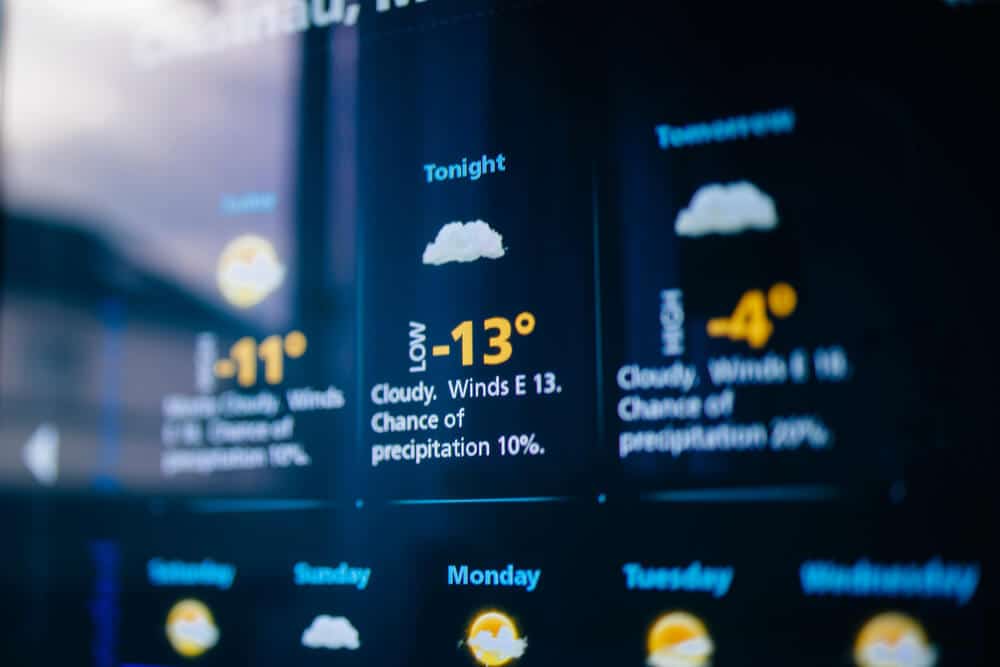If you’ve just signed up for the next marathon that’s set in 1 week, we can only assume that you’ve been training for the big race for months but you only got the chance to register now.
Well, we’re not going to sugarcoat it; if this isn’t the case, it’s a good idea to postpone your participation until you’ve had enough time to train properly.
You see, it typically takes most runners at least 16 to 20 weeks to get ready for a marathon. The exact training period depends on your fitness level and training volume.
Generally speaking, the longer the distance you’re aiming to cover, the longer the preparation time you need for it. Since a marathon is such a long distance, preparing for it within only a week simply isn’t doable, even if you’re an intermediate or advanced runner.
In today’s guide on how to prepare for a marathon in 1 week, we discuss what you should do during the final week of a marathon training program to help you reach the starting line in good form and perform as well as possible.
How To Prepare For A Marathon in 1 Week, Is 1 Week Enough?
One of the very first questions that a runner wonders about once they sign up for a race and realize the amount of time they’ve got leading up to it is “Is this period enough to prepare?”
While it’s important to remember that the exact time a runner requires to fully prepare for a marathon race varies depending on several factors (such as physical fitness, training volume, and endurance levels), it typically takes most runners at least 16 to 20 weeks to get ready for a marathon.
So if you’re thinking of training for a marathon in 1 week only, know that this isn’t nearly enough time to prepare for a marathon.
If you’re a beginner, 1 week will probably do nothing to help you participate in a marathon, let alone finish it. You may be able to cover a couple of miles, but completing the whole 26.2 miles of a marathon is out of the question.
The same goes for an intermediate or advanced runner. Sure, they’ll be able to run a longer distance, but finishing the race is more than a far stretch.
This is because running a marathon is a strenuous physical activity that takes a huge toll on the body. It requires months of preparation for your muscles to be able to carry you that long of a distance.
Additionally, it takes many weeks to get the pacing and breathing techniques right. Not to mention the mental training required to be in a strong mindset to be able to push yourself to go on when you want to do nothing more than quit.
We’re not even talking about making good time, just completing the race at all.
So what can you do in 1 week? Well, you certainly can’t fit a 20-weeks’ worth of marathon training in 7 days. So there isn’t much you can do except start training for another marathon day that’s further down the calendar.
This is regardless of your skill level. Marathon training in 1 week from scratch is just not possible and you’re very likely to end up with an injury if you decide to go for it anyway. The injury may be severe enough that it prevents you from running for a few weeks or even more.
What you can do in 1 week is continue the marathon training plan you already started months ago, and we’ll tell you the right way to do it below.
What You Should Know About Marathon Training
Whether you’re a beginner, an intermediate, or an advanced runner, a marathon training plan normally involves gradually increasing your running distance while reducing your walking distance each week.
This way, you’ll become able to run the marathon race distance taking as few walk breaks as possible by the end of the few month-long training plan.
Although the goal is to keep them at a minimum, walking breaks are essential during a marathon since you’ll need to use the water stops. Running through these may result in you gulping or spilling the water.
Also, keep in mind that a marathon training program doesn’t involve running every day, or even going for runs on specific days. However, one of its vital elements is to not run too many days in a row.
On the days in between your runs, you should either do some cross-training or take a rest day.
Examples of cross-training exercises include swimming, lifting weights, biking, dancing, yoga, boxing, using the elliptical, or any other workout that you enjoy other than running.
You can also try strength training 2 or 3 times a week. This can be very useful for runners to help them in building endurance, improving speed, and reducing risks of injury.
What is a Good Marathon Time on Average?
The majority of runners who take part in marathons consider a finishing time “good” if it’s close to the global average or shorter.
So what’s the global average marathon time? According to Runners World, it’s approximately 4 hours and 30 minutes. This average is calculated across both sexes, all ages, and all experience levels.
The data reveals that the more popular running became, the slower the world got. Between the years 1986 and 2001, the average marathon finish time went from roughly 3 hours and 52 minutes to 4 hours and 28 minutes. That’s a 15.6% increase.
The average marathon finish time for a male
According to Runners World, the average marathon finish time for a male runner in 1986 was 3 hours and 48 minutes. In 2001, it jumped to 4 hours and 15 minutes, which increased slightly to 4 hours and 22 minutes after that.
The average marathon finish time for a female
The average marathon finishing time for women across all ages and skills levels slowed between 1986 and 2001, clocking in at 4 hours and 56 minutes. Since then, however, women runners have sped up their average marathon time by an average of 1.3% each year.
If your marathon finishing time is shorter than these scores, this means you’re above average and you should be happy with your performance.
What is the Best Marathon Time?
The best marathon time is, of course, the world record. For males, the marathon world record time is 2 hours, 1 minute, and 39 seconds (2:01:39). For females, it’s 2 hours, 14 minutes, and 4 seconds (2:14:04).
That said, the average marathon finishing time for elite male runners is around 2 hours and 5 minutes, while the average marathon finishing time for elite female runners is approximately 2 hours and 22 minutes.
The question is, should you set your heart on such a marathon finish time? Well, you can certainly try, but these scores will simply be out of reach unless you’re quite a serious runner.
Statistically speaking, only the top 5% of runners finish marathons under the 3-hour mark. This means that any time less than 3 hours is a very impressive marathon time for non-professional runners.
What is a Good Marathon Pace?
In the world of running, the pace refers to how long it takes to cover a specific distance, measured in minutes per mile.
It’s so often that newbie runners think there’s a “magical” pace they should achieve and maintain during their runs or races. This is a misconception because there isn’t any particular pace to run at, whether you’re running to train or even to finish a marathon.
The reason behind this is that every runner has a different set of abilities and fitness levels, so at any point during the marathon, your pace may not be the same as the runner next to you.
As a beginner runner, you should shift your focus more on maintaining a conversational pace while running as you work on building endurance and confidence. A conversational pace is when you can talk in complete sentences while running so that you’re not gasping for air or breathing too heavily during the run.
In case you feel out of breath, don’t hesitate to slow down your pace a bit or even take a walk break. If you’re using a treadmill and you’re not entirely sure of the pace you should start running at, we recommend kicking things off at 4.0 mph and gradually increasing the pace until you reach a conversational pace.
That said, setting a proper race pace for your running plays a key role in keeping a uniform speed throughout the whole 26.2 miles of a marathon.
As such, you should figure out an appropriate goal pace once you’ve made up your mind on the goal time you want to achieve. Like a marathon finishing time, a “good” marathon pace depends on the runner’s level of experience, sex, physical fitness, and age.
The average marathon pace for a male
For a male runner between 20 and 30 years old, the average marathon pace according to skill level is:
- Beginner: 11:21 minutes per mile
- Novice: 09:33 minutes per mile
- Intermediate: 08:15 minutes per mile
- Advanced: 07:16 minutes per mile
The average marathon pace for a female
For a female runner between 20 and 30 years old, the average marathon pace according to skill level is:
- Beginner: 12:45 minutes per mile
- Novice: 11:03 minutes per mile
- Intermediate: 09:33 minutes per mile
- Advanced:08:25 minutes per mile
What to do in the Week Before a Marathon
Here’s what you need to do during the final week of your marathon training program:
Training
When it comes to training, you should end your last long-distance runs training 2 or 3 weeks before the marathon day. The weekend just before your marathon should include runs at reduced mileage, which is a process known as tapering.
Tapering allows your muscles time to rebuild and restore before the stress of the marathon instead of straining them with increased mileage.
The longest run you go on a week before the marathon day should be a distance of 8 to 10 miles. During the final week before your marathon, you should keep incorporating shorter fitness runs or walks for about 30 to 60 minutes every day or every other day.
The goal is to stay active and flexible without putting your body through strenuous training or difficult hills and stairs.
Diet

During the last week before your race, your diet should be healthy and balanced. Nowadays, there’s a general direction in sports training that deems too much carbo-loading unnecessary.
One week before a marathon doesn’t offer you enough time for dramatic diet changes, so don’t overeat. Also, stay away from foods that give you loose stools or gas, particularly during the two days leading up to the race.
Additionally, you should avoid high-caffeine energy beverages and alcoholic drinks in the few days before your marathon to help prevent dehydration.
Sleep

Sleep is a crucial part of a marathon training plan, even more so the week before it. So be sure to clear your schedule the final week to allow yourself the chance of getting multiple nights of good sleep.
During sleep, the body rebuilds and revitalizes its muscles and restores its energy. Also, cancel any plans that are set for late nights or early mornings.
For the sake of better sleep, keep away from alcoholic drinks, caffeinated beverages after noontime, and spicy foods that disturb sleep. If you’re traveling, don’t forget to pack some earplugs and a sleep mask.
If you’re too nervous to fall asleep the night before the marathon, don’t worry too much about it. It’s not uncommon for runners to toss and turn the night of the race and make it to the finish line just fine.
Besides, it’s the sleep you get in the second-to-last night before the race that counts more.
Checking the Weather Forecast

The attire you wear on the marathon race day depends on the weather that day, which is why it’s very important that you check the forecast.
Be ready for the day to be at the highest predicted temperature, but also be prepared for it to be on the chilly side while you wait to hear the starting gun. In case it’ll rain, take along a rain poncho, a couple of large trash bags, or any other lightweight protective rain gear.
Here are a few gear considerations to refer to for the race day:
- In hot weather: running a marathon makes you vulnerable to overheating, even if the day is relatively cool.
In this case, you won’t want to move with many layers on you, so be ready to ditch your cover-up after the race starts. You can cool down during the marathon by soaking your hat in water when you pass through the water stops.
You’ll want to use more chafing and blister protection methods because the hot weather makes you more prone to these. You should also seek sun protection in the form of sunscreen and a hat during the race.
- In cold weather: it can be challenging to figure out the right layers for a marathon on a cold day. While you need to warm up, you also need a layer to protect you from the wind so your body doesn’t lose too much of its heat.
Consider packing a pair of gloves and some hand warmer packets to use. A neck/ear warmer can also help warm you up.
- In rain: in this case, your best bet is a disposable rain poncho with arms. You can also use a large garbage bag and disposable shower caps.
- At night: when it gets dark during a marathon you’ll need to get a trusty running light. Don’t forget to practice using it in advance.
Tips to Step Up Your Marathon Training
Here are some tips to help you make the most out of your marathon training:
- Choose a few pairs of proper running shoes to train in. This can help improve your pace, reduce fatigue and injury, and keep your feet comfortable.
- Consider hiring a running coach for your marathon race. They can give you valuable guidance on training techniques and create a custom plan according to your fitness level and daily schedule.
- Use apps and tools to monitor your progress. For example, “Nike Run Club” and “Runkeeper”.
Final Thoughts On How To Prepare For A Marathon in 1 Week
There you have it, a guide on how to prepare for a marathon in 1 week, assuming that you’ve been training for the big race for months now and want to know what the final week should involve.
This is because marathon training in 1 week from scratch is just not possible and you’re very likely to end up with an injury if you decide to go for it anyway. Typically, it takes most runners at least 16 to 20 weeks to get ready for a marathon.
